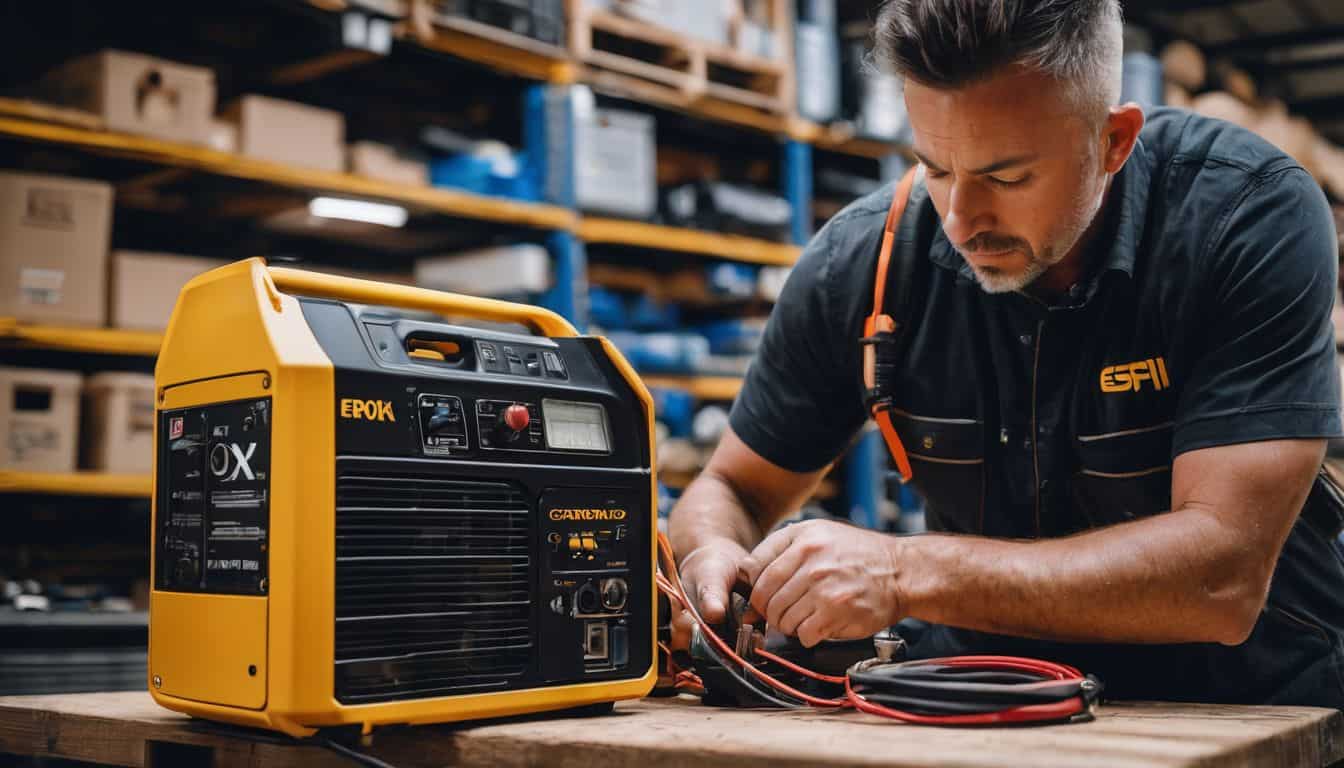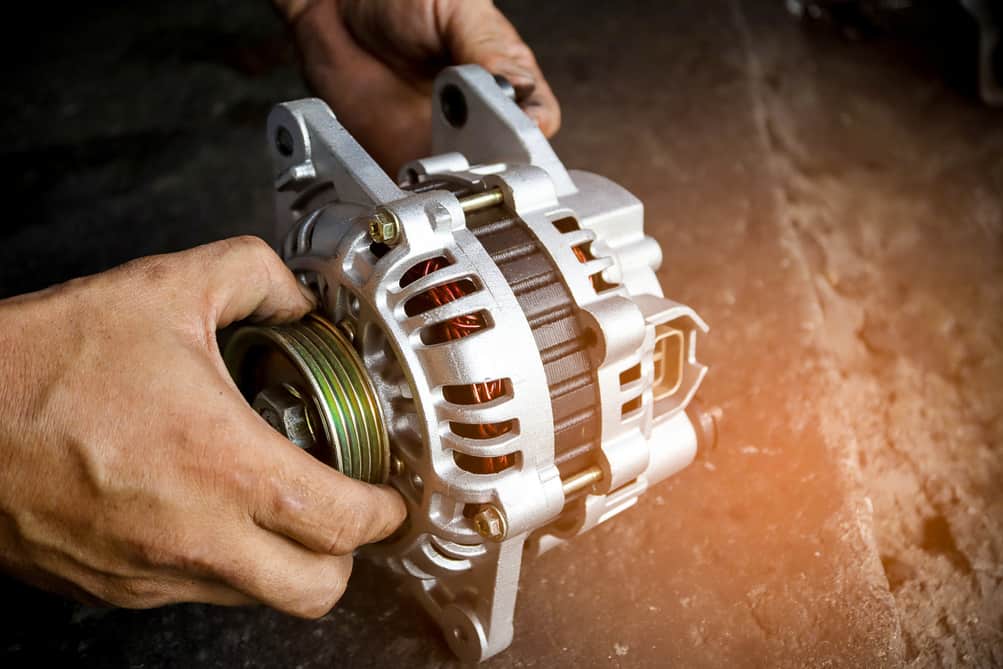Understanding the basics of portable generators is crucial, but maintaining them properly is what ensures their reliability when you need them most. This guide will help you establish an effective maintenance routine to maximize your generator’s lifespan and performance, ensuring it’s ready whenever emergency power is needed.
Regular Maintenance Schedule
A consistent maintenance schedule is vital for generator longevity. The cornerstone of this schedule is regular oil changes, typically required every 40-50 hours of operation or at least annually. The first oil change for new generators should occur after 25 hours of use to remove any break-in debris from the engine. This early maintenance sets the foundation for long-term reliability and optimal performance.
Following proper safety tips while operating portable generators includes maintaining them correctly. Regular maintenance ensures reliability and prevents dangerous malfunctions that could compromise safety. Establishing a maintenance log helps track service intervals and identify potential patterns in performance or issues that need attention.
Oil Maintenance Protocol
Understanding how often to change your generator oil is critical for engine health. Oil serves multiple purposes: lubricates moving parts, helps cool the engine, and carries contaminants away. Fresh oil is crucial for optimal performance and longevity, making regular oil maintenance one of the most essential aspects of generator care.
Before each use, check the oil level and condition. Dark, dirty oil indicates the need for a change. When changing the oil, allow the engine to cool slightly after running to ensure the oil is warm enough to drain completely but not hot enough to cause burns. Always dispose of used oil properly through authorized recycling centers. Using the correct oil grade for your specific generator and operating conditions is equally important for maintaining proper engine protection.
Air System Care
The air filtration system prevents debris from entering the engine, making it crucial for long-term reliability. A clean air filter ensures proper fuel mixture and engine performance, while a dirty filter can reduce efficiency and potentially damage the engine. Inspect the filter monthly, more frequently in dusty conditions or during heavy use periods.
Clean foam filters with soap and water, allowing them to dry completely before reinstallation. Paper filters should be replaced when dirty, as they cannot be effectively cleaned. The air system’s condition directly impacts fuel efficiency and engine performance, making regular inspection and maintenance essential for optimal operation.

Fuel System Maintenance
Fuel system care begins with using fresh fuel and adding stabilizer when the generator will sit unused for extended periods. Modern fuel can start to degrade within weeks, making fuel management crucial for reliable operation. Clean the fuel tank annually and inspect fuel lines for cracks or deterioration, replacing any components that show signs of wear.
Before long-term storage, either drain the fuel system entirely, fill it with stabilized fuel, and run the generator briefly to distribute the treated fuel throughout the system. This practice prevents varnish formation in the carburetor and fuel lines, ensuring easy starting when the generator is needed.
Electrical Component Care
Battery maintenance is essential for electric-start generators. Keep terminals clean and connections tight to ensure reliable starting. Test the battery regularly and replace it when it shows signs of weakness. A weak battery can fail when you need the generator most, making regular battery maintenance crucial for emergency preparedness.
Inspect all electrical connections monthly for corrosion or looseness and verify proper output voltage during regular test runs. The electrical system’s reliability directly impacts the generator’s ability to provide consistent power when needed, making thorough maintenance essential.
Preventive Measures
Regular testing is crucial for reliability. Running your generator monthly for at least 30 minutes under load helps keep internal components lubricated and prevents fuel system issues. These test runs also provide opportunities to identify potential problems early, ensuring the generator remains ready for emergencies.
During test runs, monitor the generator’s performance, noting any unusual sounds, vibrations, or operating characteristics. This attention to detail helps identify developing issues before they become serious problems, potentially saving costly repairs and ensuring reliability when the generator is needed most.
Seasonal Maintenance
Each season brings different maintenance requirements that need attention. Winter operation requires appropriate oil weight and protection from the elements. Spring startup should include thorough inspection and testing of all systems. Summer operation may require more frequent air filter checks due to increased dust and debris, while fall maintenance should focus on preparing for potential winter use.
Adapting maintenance practices to seasonal conditions helps ensure reliable operation year-round. This might include more frequent inspections during heavy use periods or additional protection measures during harsh weather conditions.
Troubleshooting Common Issues
To maintain generator reliability, familiarize yourself with common problems and their solutions. Warning signs like unusual noises, smoke, or reduced power output should be addressed immediately. While many issues can be resolved through basic maintenance, it’s important to recognize when professional service is needed to prevent more serious problems.
Developing a basic understanding of your generator’s normal operating characteristics helps identify potential issues early. This knowledge, combined with regular maintenance, helps ensure your generator remains reliable and ready when needed.
Conclusion
Regular maintenance might seem time-consuming, but it’s far less inconvenient than a generator failure during an emergency. By following these comprehensive maintenance guidelines and paying attention to your generator’s condition, you can ensure it remains a reliable power source for years to come. Remember that prevention through regular maintenance is always more cost-effective and reliable than emergency repairs when you need power most.
FAQ
What’s the quickest way to check if my generator needs maintenance?
Look for these signs: hard starting, unusual noises, smoke, or reduced power output. Check oil level and color before each use. Start it monthly to catch issues early.
How do I safely change my generator’s oil?
Run the generator for 5 minutes to warm the oil. Turn it off, remove the drain plug, and drain into a pan. Replace the plug and add new oil to the fill line.
What’s the step-by-step process for monthly generator testing?
Connect a load like a space heater, run for 30 minutes, and check for unusual sounds or smoke. Monitor power output with a basic multimeter to ensure proper voltage.
How do I prepare my generator for long-term storage?
Add fuel stabilizer and run for 10 minutes to circulate it. Change the oil, remove the battery, and store it in a dry place. Cover with a breathable material.
What’s the correct way to clean my generator’s air filter?
Remove the filter cover and tap the paper filters gently to remove dust. For foam filters, wash them with soap and water and let them dry completely. Replace if damaged or very dirty.
How do I know if my generator’s fuel has gone bad?
Smell the fuel – if it’s sour or looks darker than usual, drain it. Start fresh with new fuel and add stabilizer if you won’t use it within 30 days.
What’s the fastest way to get my generator ready for an emergency?
Keep a ready kit with fresh oil, filters, spark plug, and stabilized fuel. Store the generator with a partial fuel load and fully charged battery.
How do I maintain my generator during heavy use periods?
Check oil level every 8 hours of operation. Clean air filter daily in dusty conditions. Let it cool for 30 minutes between refueling. Monitor for overheating.
What should I do if my generator won’t start?
Check these items in this order: fuel level, oil level, battery connection, spark plug condition. Clean the air filter and drain old fuel if it’s been sitting unused.
How do I protect my generator from weather damage?
Use a generator tent or canopy during operation in wet weather. For storage, keep it elevated off the ground in a ventilated, covered area.

Leave a Reply